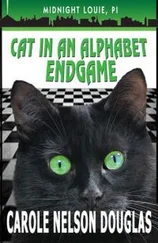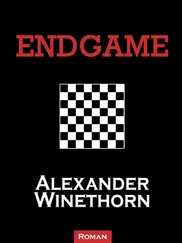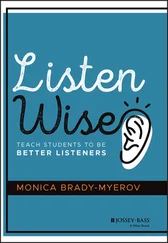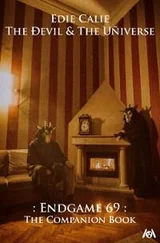It was Bobby, through Pal Benko, who’d approached the station to say that he wanted to give an interview, his first since he’d won the match against Spassky in 1992. At first, the interview was fairly benign, and questions such as why Bobby preferred to live in Budapest were answered politely (“I like the mineral baths, the people; you have a fabulous city here”), but soon he became impatient, saying he wanted to discuss much more substantive things. If the world, at least the Hungarians, had missed his anti-Semitic remarks during his press conferences in 1992, they certainly couldn’t have missed his near hysterical posturing on Calypso Radio seven years later.
The rationale that Bobby offered for his blather was that all of his personal belongings and memorabilia—admittedly valuable to him, and some of interest to collectors—that he’d stored at the Bekins warehouse in Pasadena, California, had been auctioned off because of the failure of his agent Robert Ellsworth to pay the storage bill of $480. “It was worth tens of millions, or even hundreds of millions of dollars, and it was stolen!” Bobby complained. Then in some incredible leap of illogic, he equated the loss of his property to a conspiracy hatched by the Jewish people, and his argument was delivered with such venom and vulgarity that the broadcasting station considered ending his time on the show. Monath appealed to him, “Will you please allow me to ask you some friendly questions about chess?” Raising his voice and bullying his way forward, Bobby replied: “No, I won’t let you!” He continued his rant, talking about how he was being “persecuted by the Jews,” and claiming that “the Holocaust never happened,” and using four-letter words to describe “the Jew Ellsworth.” It was almost as though he felt that this opportunity of being on the air live might be his one and only chance to set the record straight—to inform both the station’s listeners and the world of the injustices done to him. His hatred continued to spill out into the broadcasting ether until Monath could stand it no longer: “Mr. Fischer, you are destroyed in your mind,” he said, and Fischer’s microphone was rendered mute.
The facts of Fischer’s loss of belongings are fairly straightforward: He’d been paying for storage costs for about ten years, and his bin contained a large safe with such things as his letter from President Nixon congratulating him for his win in Iceland, his World Championship medal presented to him by FIDE, letters, score sheets, paintings, trophies, statues, scrapbooks, photos, books, and hundreds of other items. One great loss for the chess world was the original scores of games that Bobby played in a series of simultaneous exhibitions throughout South America and about which he planned to write a book, since he had played a number of interesting games during that time. If sold individually—there were thousands of games, according to Bobby—or as one large cache to a collector, the value of these score sheets alone would have totaled somewhere around $100,000.
Bobby had been giving Ellsworth, his agent, about $5,000 a year to pay the storage cost and some minimal taxes on property—five lots—that he owned in Clearwater and Tarpon Springs, Florida, which were originally owned by his grandfather (Bobby bought them from his mother in 1992). Those various expenses came to about $4,000 a year; the $1,000 left over was for Ellsworth’s management. The storage room was registered under the names of “Claudia Mokarow and Robert D. James,” and since Ellsworth was paying the charges year after year, it is possible that the storage company had no idea that the material in the bin belonged to Bobby Fischer. Somehow Ellsworth had blundered—either through carelessness or a clerical error—and didn’t pay $480 that was owed, and as contractually agreed upon, the company had the right to dispose of the storage room’s contents. As soon as Ellsworth discovered his mistake, he felt guilty about it, and one can understand how heartbreaking it was to Bobby: “My whole life!” he said, outraged.
Ellsworth actually realized his error in time to attend the auction and buy back $8,000 worth of the material, not bidding on comic books and other memorabilia that he believed—wrongfully, as it developed—would no longer be of any interest to Fischer. Harry Sneider, Fischer’s former physical trainer, accompanied Ellsworth to the auction and Sneider’s son subsequently traveled to Budapest with twelve boxes of material. When he handed them over, Bobby said, “Where’s the rest?” He claimed to have had at least one hundred boxes in his storage unit and maintained that what had been brought to him was only one percent of his belongings.
He just wouldn’t let it rest. Before he was done, he gave thirty-five radio broadcast interviews—they all found their way online—most of them through a small public radio station in the Philippines and some lasting almost two hours, expounding on his theory that he was a victim of a conspiracy that involved a Jewish cabal, the U.S. government, the Russians, Robert Ellsworth, and the Bekins Storage company.
It seemed that Bobby had lapsed over the years into a state of increasingly frequent paranoia, believing as he did that people and organizations, bonded in a conspiracy, were out to persecute him. It was as if he had a form of Tourette’s syndrome where, plagued by a temporary storm in his mind, he couldn’t stop himself from denigrating Jews in the vilest terms: His hate rhetoric just spewed out and he couldn’t—nor did he want to—control it. He was not delusional nor did he have hallucinations—that anyone knows of—so he could not be labeled psychotic. (One psychiatrist, Dr. Magnus Skulasson, who knew Bobby well toward the end of his life, insisted that the term “psychotic” definitely didn’t apply to him.) Indeed, removed from stressful situations (such as the loss of his possessions at Bekins), he was completely in touch with reality and could be charming, friendly, and even rational (if limited to certain topics) at times. Dr. Anthony Saidy, one of Bobby’s oldest and closet friends, wrote a letter to Chess Life about Bobby’s broadcasts in which he stated: “His paranoia has worsened through the years, and he is more isolated than ever in an alien culture.” Saidy added that the media were exploitative in publishing the most hideous of Bobby’s statements, that the press should leave him alone.
When Bobby read Saidy’s comments he was furious. He lambasted Saidy for living in the United States, a truly alien culture by his definition, and called Saidy a Jew (he is not).

The smell of camphor trees in Kamata, a suburban section of Tokyo, intrigued Bobby. Many of the Japanese would scoop up or pluck the aromatic leaves and boil them and inhale the steam, claiming that it was good for colds; others felt that camphor steam could be harmful. Regardless of who was correct, the trees drew people’s attention, including Bobby’s. If you picked up just a few of the fallen leaves and crushed them in your hands, you could smell their pungent scent. Bobby increasingly relied on homeopathic remedies as an alternative to prescription drugs for his aches or pains, and he was always looking for natural cures; this quest for medicinal herbs may have plunged him into trouble.
He’d arrived in Tokyo on January 28, 2000, after first announcing to his friends that he’d be gone from Budapest “for a few months” and storing everything in Benko’s apartment. He never returned. In Japan, he had a standing invitation to stay with Miyoko Watai, the president of the Japanese Chess Association, a woman he’d known since 1973, when he first visited the country, seeking a venue for his upcoming yet never-played match with Karpov. Over the years they’d corresponded, and she’d visited him both in Los Angeles and in Budapest. Miyoko, one of the strongest women players in Japan, admitted that as a chess player Bobby was her idol and that before meeting him she’d read everything about him she could find and had played over every one of his games. She was in love with him.
Читать дальше
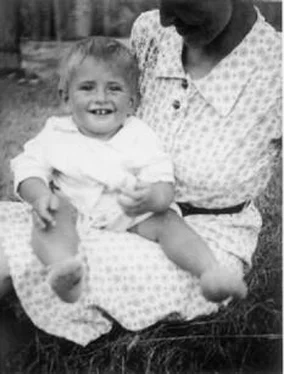


![Антон Текшин - EndGame [СИ]](/books/394477/anton-tekshin-endgame-si-thumb.webp)
